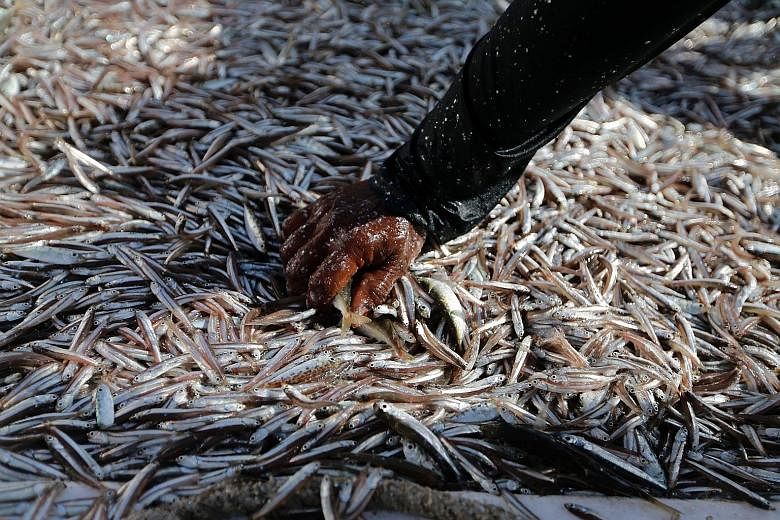VIENNA • Indonesia, which has sunk 170 fishing boats from other countries caught in its waters, has called on the international community to look at illegal, unreported and unregulated (IUU) fishing as a form of transnational organised crime.
At the UN Commission on Crime Prevention and Criminal Justice (CPCJ), Maritime Affairs and Fisheries Minister Susi Pudjiastuti said transnational organised crime in fishing is growing into a complex and dangerous activity.
"Prevention of fisheries crime and fisheries-related crimes is part of the effort to realise Indonesia's vision to be a world maritime axis," Ms Susi told the plenary session on Monday. She led the Indonesian delegation at the Austrian meeting.
She said IUU fishing, particularly "transnational organised fisheries crime", poses a serious problem for the economies of coastal states and the sustainability of their fisheries.
More than 60 per cent of ocean fisheries are being exploited beyond their sustainable yields. Illegal fishing accounts for an estimated 20 per cent of the world's catch and as much as 50 per cent in some fisheries, according to the World Wildlife Fund.
Further adding pressure to stocks, a study published in January in the journal Nature Communications found that the global fish catch is about 30 per cent larger than reported by countries. The new estimate included illegal fishing, discarded fish, or bycatch, as well as local or subsistence fishing.
The Indonesian government has said that IUU fishing has contributed to annual economic losses for the country of up to US$20 billion (S$27.7 billion).
Ms Susi's comments at the UN meeting followed the adoption of tougher policies to protect fishing grounds across Indonesia. Since taking office in 2014, she has ordered the sinking of some 170 vessels caught poaching in Indonesia and impounded 700 others.
Indonesia is planning to use data from miniature satellites to pinpoint the location of illegal fishing vessels trawling its vast waters. Ms Susi and Spire Global, the Silicon Valley data company, signed a memorandum of understanding last month to use its "nanosatellites" to track ships as they pass through Indonesian waters.
The minister is also rolling out a programme to revitalise the fisheries industry that will see the government "give away" almost 3,500 vessels to local fishermen by the end of the year and allocate 1.6 trillion rupiah (S$162 million) to support fish farms. Another 1.8 trillion rupiah will be set aside to improve the quality of fishery products.
Indonesia, Norway and the UN Office on Drugs and Crime (UNODC) on Monday co-hosted an event on transnational organised fishery crime. The CPCJ commission is part of UNODC.
THE JAKARTA POST/ASIA NEWS NETWORK

